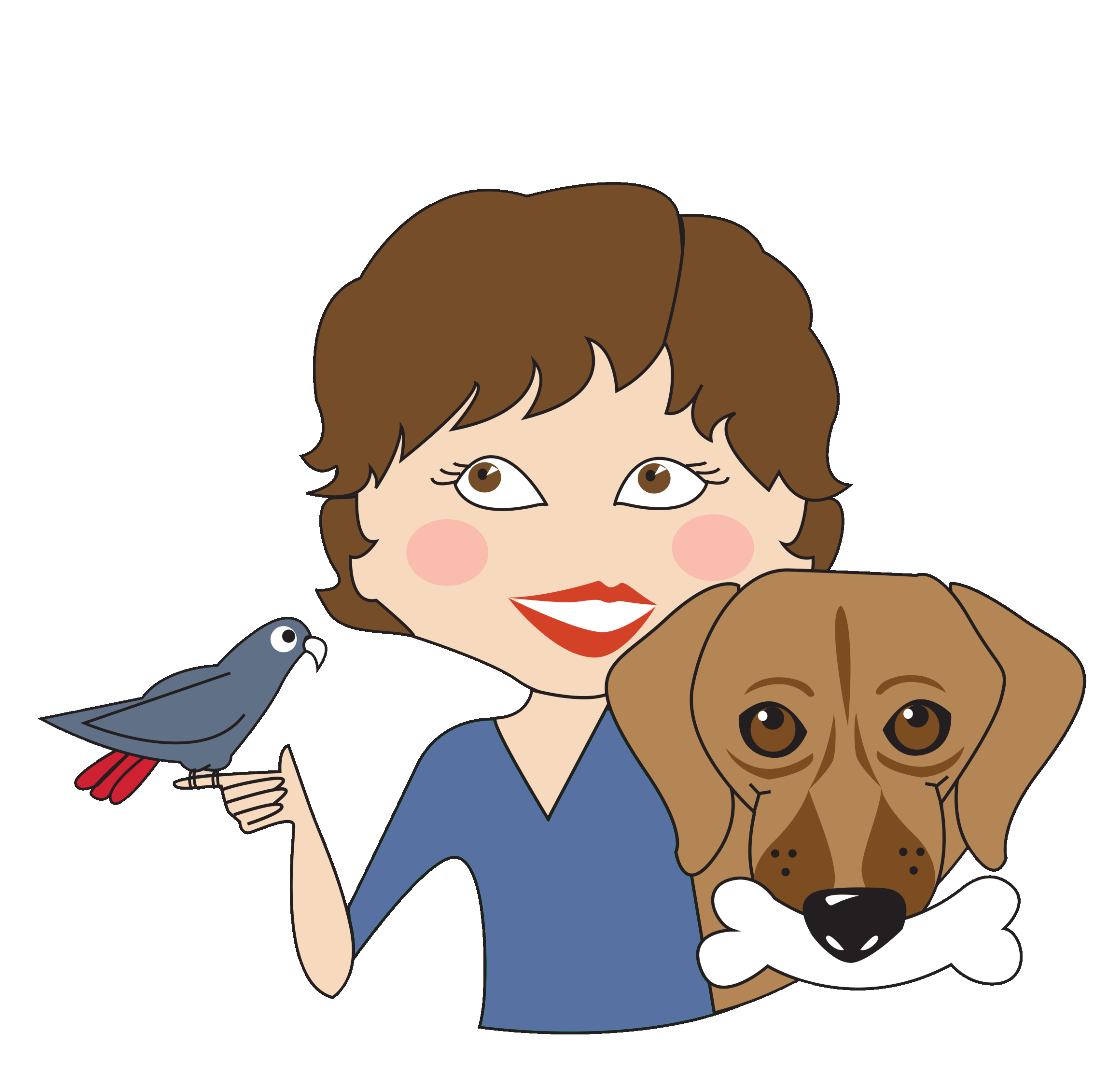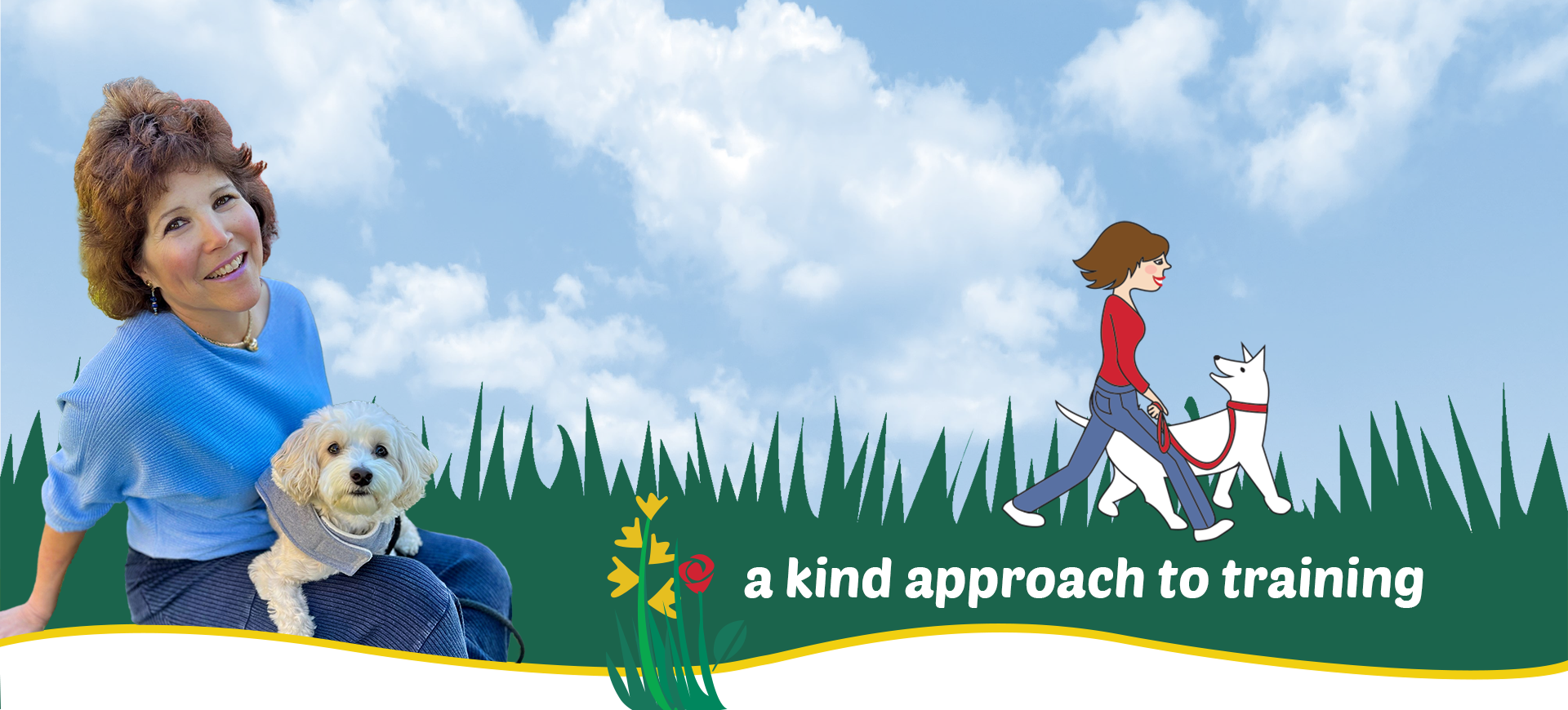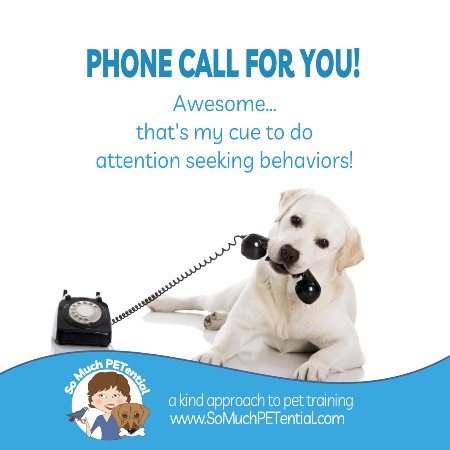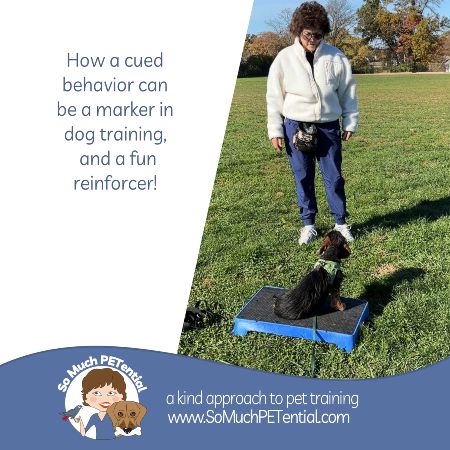Are there times that your dog turns a deaf ear when you call him to come? Like when he is outside smelling flowers, in pursuit of a squirrel or playing in leaves?
It can be pretty frustrating, I know. People will tell me their dog is stubborn or obstinate or it is something about that breed.
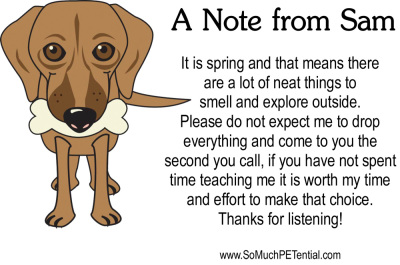 What is really going on here? Well, it is always important to remember that recall (the act of coming when called) is a behavior just like sitting and is learned through lots of positive practice…in other words, lots and lots and LOTS of practicing at a time when you and your student can focus, and you can guarantee valuable outcomes for your dog.
What is really going on here? Well, it is always important to remember that recall (the act of coming when called) is a behavior just like sitting and is learned through lots of positive practice…in other words, lots and lots and LOTS of practicing at a time when you and your student can focus, and you can guarantee valuable outcomes for your dog.
Just as with teaching any other behavior, having success involves choosing the right learning environment and the right reinforcers for your pet, your having great timing in the delivery of marking the wanted behavior and reinforcing it, and progression in small or large enough steps that make the lesson plan easy and engaging for your student.
Recall is a skill that can be practiced every day. There are so many opportunities for building value for that choice to come. It is important that you give your dog great positive feedback that coming is worth every ounce of effort on his part. Puppies especially naturally already want to be by your side. What a fabulous time to reinforce him with valued food, play and/or attention!
There are so many strategies for teaching recall. In using any of them, these are some things to keep in mind:
- Always focus on setting you and your pet up for success. Do not try to call your dog when you know he will not come. Remember that every time you call him and he does anything but coming, you are weakening that cue and actually even teaching him a different meaning for the word come than what you had intended. Only call your dog when you can guarantee that at that moment, he will come when called.
- Just as in teaching any behavior, begin lessons in environments with minimum distractions and difficulty and only increase that as your dog can continue to succeed.
- Especially when you are first teaching this, always only call your dot go come when you can guarantee your dog a positive outcome. If you need your dog to come so that you can lock him in a room, give him a shot or something else unpleasant, this is NOT the time to be using your cue.
- It is a good idea to practice the collar grab game so that your dog has a positive association with your touching or applying pressure to his collar.
- Practicing teaching your dog that his name has value by saying it, and when he looks at you, marking that behavior and giving him reinforcement.
- If you have already weakened your recall cue, you may want to consider starting fresh with a new word or hand signal.
- Have a good knowledge of your dog’s Awesome List and use high value items during training as you add to the level of difficulty. Remember, your dog is going to make decisions based upon choices. Stack the scale in favor of the choice you want him to make and mix up reinforcers so that you are unpredictable. It sure makes things fun.
- Practice. Practice. This is a behavior that you can work on throughout the day in short amounts of time.
Here are a few ideas for getting you started:
Ping Pong – With another person in a secure space with no distraction, stand a short distance apart. With a high value treat, one person will call your dog ONCE. When he gets there, that person will grab his collar and hold it while giving him a cookie. The other person will call the dog when the dog is not looking and repeat. As your dog gets better at this (after about 10 perfect recalls), you can practice moving further apart and continue to increase distance and adding distractions.
Catch me if you can – (again, in a secure environment with minimum distractions) – If you have two people, one person will hold your dog back while you are a short distance away. Get in your ready position, call your dog and then run. When your dog gets to you, give him a huge value reinforce. If you have only one person, you can very gently push him back from the chest area, call him and run.
Everyday life – Call your dog to come before you feed him or anytime that you know you are going to do something he really likes.
How do you practice recall with your dog? I’d love to hear.
